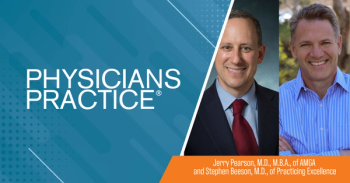
Our Non-Physician Responsibilities Lead to Burnout
Why are more physicians experiencing burnout? The answer doesn’t lie in practicing medicine, but rather in checking boxes and meeting compliance.
I keep reading startling statistics about how over half of physicians are burned out. It's even worse if you are in primary care. We have an epidemic of emotional fatigue, suicide, divorce, and depression. While I understand the pressures that lead to burnout and have experienced symptoms of it myself, I still wonder why I am at risk at this point in my career (which I am if you believe the statistics).
My workload has not increased. In fact, since medical school and residency, my work is pretty 8-to-5 with few calls when I am on call, no babies to deliver, and no patients to admit. Similarly, my hospitalist colleagues do not need to balance an inpatient admission and clinic hours. Granted, when I am at work, I work hard and can become emotionally and intellectually spent by the end of the day. However, I would expect that the time I have to sleep, rest, enjoy my family, exercise, and eat dinner would buoy me up for the next day in the medical trenches.
So, if my hours are better, why is burnout on the horizon? I think the reason there are increased rates of burnout is two-fold. First, the type of work we have to do to achieve the same end has changed dramatically. Second, we have different expectations of ourselves and our work.
For all the advantages of the EHR, of which there are quite a few, it is no longer a tool that works for us, but a temple where we must pay homage. What I do is not as important as what I document. Similarly, I face ever increasing regulations of what manner of hoops I have to jump through to treat a patient, something I am specially trained to do. It is no longer good enough that my patient with the below-the-knee amputation takes my prescription down to the medical goods shop and gets a wheelchair. Instead, I need to document what he needs and support it through a specific series of phrases and attestations that are so confusing, dense, and numerous, it is impossible for me to know them all. My medical training and judgment has been supplanted by a rule book that I have to memorize.
The expectations are also different. When I was a resident and early in my career as a full-spectrum family physician, my expectations of my career and myself were pretty straightforward. I would be on-call, which meant that several times a week or month, I would get out of bed, drive to the hospital, and spend hours conducting a history and exam and developing a treatment plan. Sometimes, I even felt it necessary to sleep at the hospital because of my concern about the patient's status. While the 3 am calls never became appealing, it was part of my role as a physician - something I saw done when I was in training and something I assumed I would do until I retired.
Somewhere along the way, though, I no longer had to provide full-spectrum care for my patients. If I didn't care to admit to the hospital anymore, there was a hospitalist ready to take care of that for me. When I decided to stop doing obstetrics, my OB-GYN colleagues happily accepted my referrals. More recently, the newborn service is slowly transitioning to pediatric hospitalists. Because of the way I've been able to parcel out my practice, I no longer have the flexibility to respond to the unexpected. I am no longer willing to make the sacrifice of getting up at 3 am. My profession has become more of a job - compartmentalized into the hours I want to work and the work I want to do.
I wonder what my risk of burnout would be like if I could get back to documentation for the sake of keeping track of what happened rather than checking boxes and meeting compliance. I don't think it is the demands of being a physician - responding to a code, considering a puzzling diagnosis, or holding a hand through the night - that leads to burnout. I think it is all the non-physician things we do that are slowly eroding our profession and our passion.
Newsletter
Optimize your practice with the Physicians Practice newsletter, offering management pearls, leadership tips, and business strategies tailored for practice administrators and physicians of any specialty.








